
African Marigold (Orange) Plant in 5 inch Pot
(MRP Inclusive of all taxes)
- Shipping ₹79 for entire order
- Country of origin: India

(MRP Inclusive of all taxes)
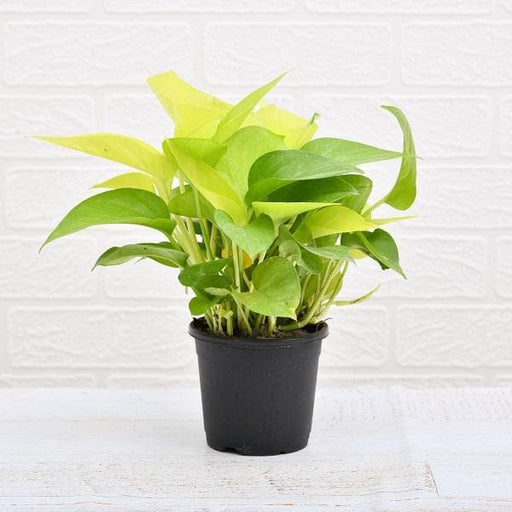 Save 29%
Save 29%
Air Purifier Money Plant with Pot The Air Purifier Money Plant, also known as Pothos or Epipremnum aureum, is a stunning indoor plant that...
View full details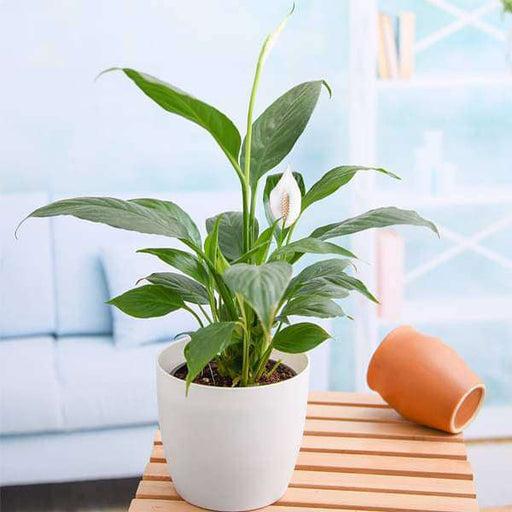
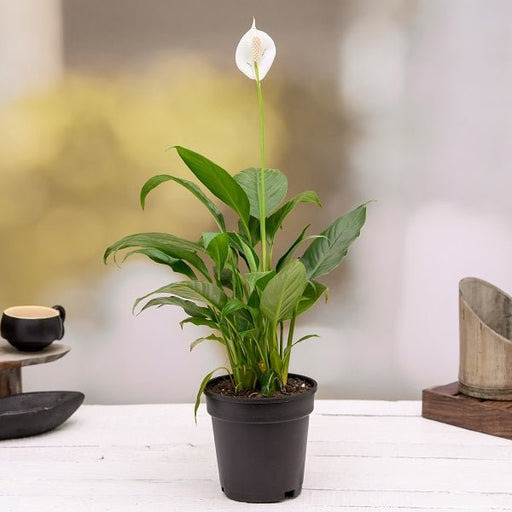 Save up to 15%
Save up to 15%
Peace Lily, Spathiphyllum - Plant The Peace Lily, scientifically known as Spathiphyllum, is a stunning houseplant celebrated for its elegant white...
View full details
 Save 25%
Save 25%
Jasminum sambac, Mogra, Arabian Jasmine - Plant Jasminum sambac, commonly known as Mogra or Arabian Jasmine, is a fragrant flowering plant...
View full details
 Save 18%
Save 18%
Combo Constituents Includes the Parijat Tree (Night-Flowering Jasmine), a culturally significant plant with fragrant flowers. Description The Pari...
View full details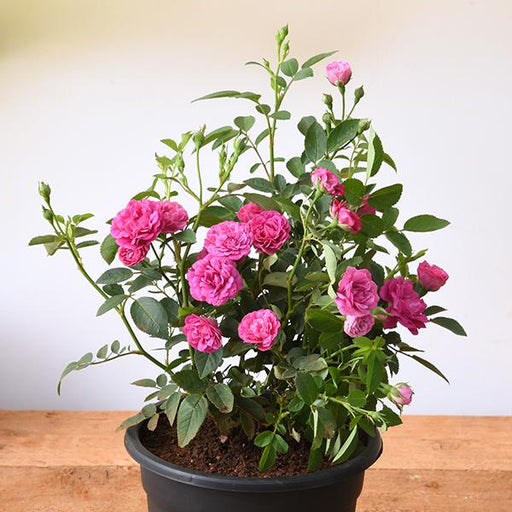
 Save 25%
Save 25%
Miniature Rose, Button Rose (Any Color) - Plant The Miniature Rose, also known as the Button Rose, is a charming and compact flowering plant that ...
View full details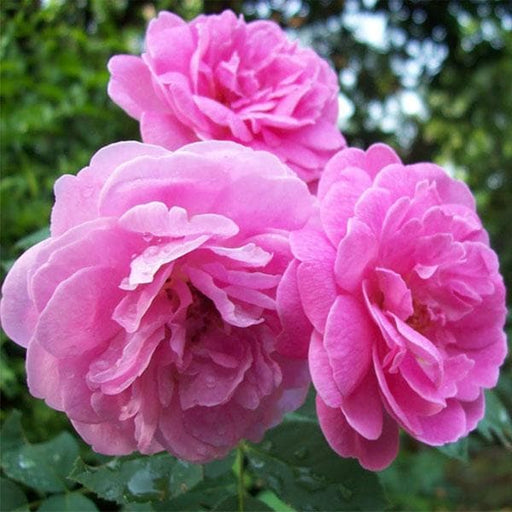 Save 25%
Save 25%
Damascus Rose, Scented Rose (Any Color) - Plant The Damascus Rose, also known as Rosa damascena, is a timeless symbol of beauty and romanc...
View full details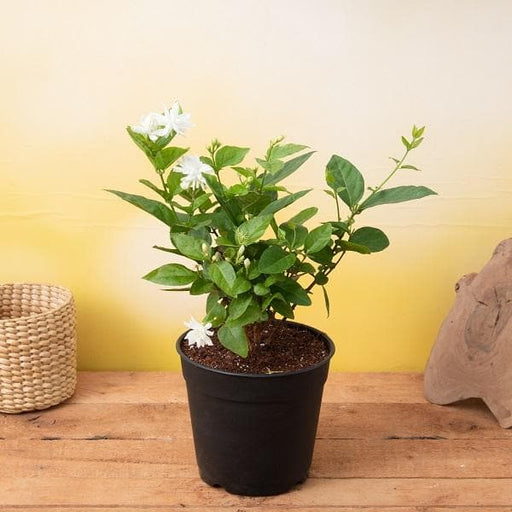
 Save 17%
Save 17%
Beautiful Fragrant Mogra, Arabian Jasmine Plant with Pot The Beautiful Fragrant Mogra, also known as Arabian Jasmine (Jasminum sambac), is...
View full details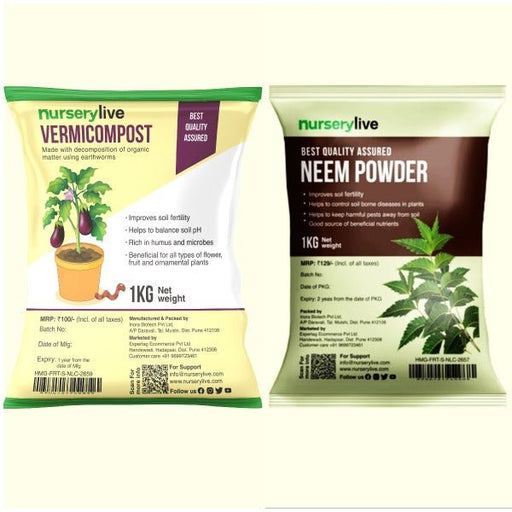 Save 15%
Save 15%
Pack of Vermicompost and Neem Cake for House Plants Transform your indoor garden with our premium Pack of Vermicompost and Neem Cake, spec...
View full details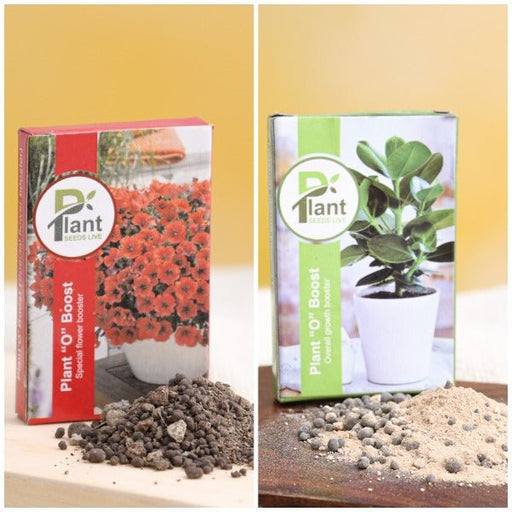
Pack of Plant Growth and Flower Boosters Unlock the full potential of your garden with our Pack of Plant Growth and Flower Boosters! This ...
View full details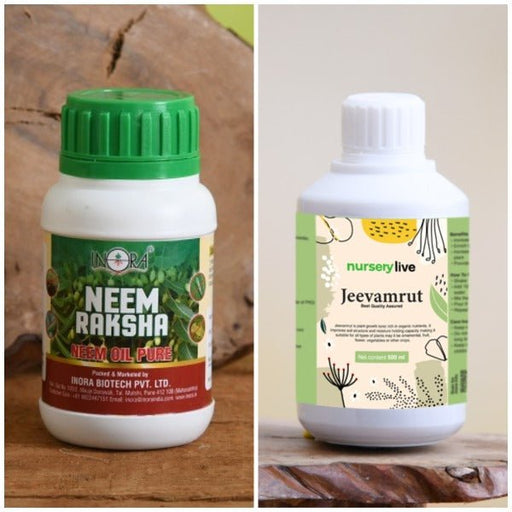 Save 38%
Save 38%
Combo of Jeevamrut and Neem Raksha for Easy Growth and Protection of Houseplants Transform your indoor garden with our exclusive combo of ...
View full details Save 22%
Save 22%
Plant Nutrients Kit (Pack of 16) for a Healthy Garden Transform your garden into a lush paradise with our Plant Nutrients Kit, featuring 1...
View full details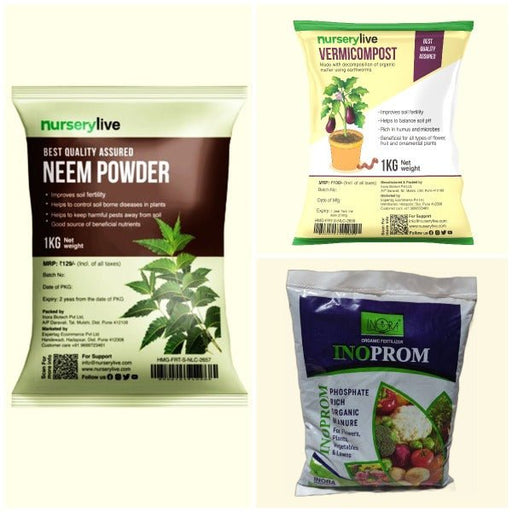 Save 16%
Save 16%
Combo of Top Plant Fertilizers Elevate your gardening game with our exclusive Combo of Top Plant Fertilizers, featuring two bags of premiu...
View full details Save 24%
Save 24%
Pack of 4 Additives to Make Soil Healthy and Nutrient Rich Transform your garden into a thriving ecosystem with our Pack of 4 Additives de...
View full details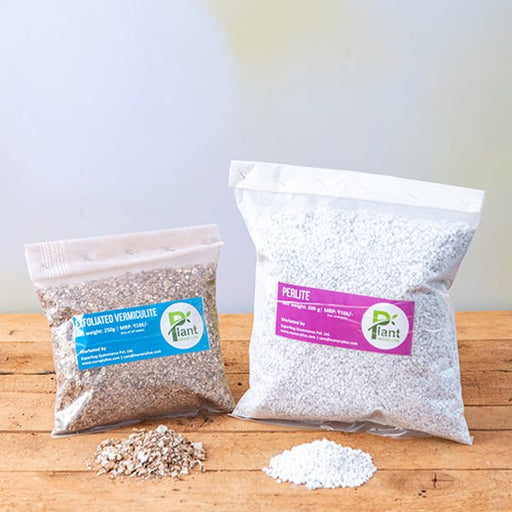 Save 30%
Save 30%
Transform your gardening experience with our premium Combo of Perlite and Vermiculite. This unique blend is designed to enhance soil aeration and ...
View full details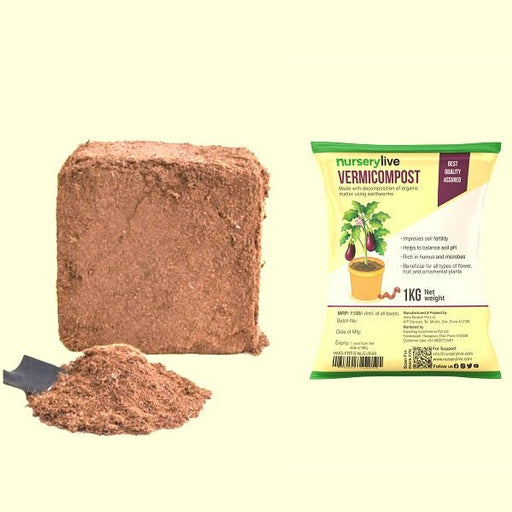 Save 27%
Save 27%
Combo of 2 Vermicompost and Cocopeat - Enrich Your Soil Naturally! Transform your garden into a thriving ecosystem with our Combo of 2 Ver...
View full details
 Save 35%
Save 35%
Best 6 Plants for Perfect Indoor Garden Transform your living space into a lush oasis with our curated collection of the Best 6 Plants for a...
View full details
 Save up to 50%
Save up to 50%
Mini Succulent Garden Pack Transform your space with our Mini Succulent Garden Pack, featuring a delightful collection of 4 any variety beautiful s...
View full details
 Save 30%
Save 30%
5 Best Fragrant Plants Transform your garden or indoor space into a fragrant paradise with our curated selection of the 5 Best Fragrant Plants. Th...
View full details
 Save 24%
Save 24%
Set of 2 Bonsai Looking Grafted Adeniums Transform your indoor or outdoor space with our exquisite Set of 2 Bonsai Looking Grafted Adenium...
View full details Save 45%
Save 45%
Top 4 Die Hard Succulents Pack Transform your indoor or outdoor space with our Top 4 Die Hard Succulents Pack, featuring a curated selecti...
View full details
 Save 30%
Save 30%
5 Best Indoor Plants Pack Transform your living space into a lush oasis with our '5 Best Indoor Plants Pack.' This carefully curated collection fe...
View full details
 Save 25%
Save 25%
Set of 4 Evergreen Air Purifier Plant Pack Transform your indoor space into a lush, green oasis with our Set of 4 Evergreen Air Purifier Pla...
View full details| SrNo | Item Name |
|---|---|
| 1 | African Marigold (Orange) Plant in 5 inch (13 cm) Pot |
The African Marigold, known scientifically as Tagetes erecta, is a vibrant and hardy flowering plant that brings a burst of orange color to any garden or indoor space. This 5-inch (13 cm) pot is perfect for those looking to add a touch of nature to their home or garden. With its lush foliage and striking blooms, the African Marigold is not only visually appealing but also beneficial for the environment.
This plant is renowned for its ability to repel pests, making it a natural companion for vegetable gardens. Its bright orange flowers are not only a feast for the eyes but also attract beneficial pollinators like bees and butterflies, enhancing biodiversity in your garden.
The African Marigold is known for its resilience and adaptability, thriving in various soil types and conditions. Its long-lasting blooms can endure heat and drought, making it an excellent choice for gardeners in diverse climates.
If you think caring for plants is as easy as pie, wait until you meet the African Marigold. This vibrant beauty requires a little TLC—think of it as a diva that needs just the right amount of sunlight, water, and love. Keep it in well-drained soil and watch it flourish like a star on the red carpet.
Potting these golden gems is like giving them a cozy home. Choose a 5-inch pot that’s just the right size—too big, and they’ll throw a tantrum; too small, and they’ll feel cramped. Use quality potting mix, and don’t forget to add drainage holes.
These marigolds are not just pretty faces; they’re the superheroes of your garden! They repel pests, attract pollinators, and even improve soil health. Who knew a flower could be so multi-talented?
Want to bring a splash of sunshine indoors? Growing African Marigolds in pots is your ticket to a vibrant home. Just place them near a sunny window, and they’ll brighten up your space faster than a cup of coffee on a Monday morning.
Not all marigolds are created equal! The African Marigold comes in various shades of orange and yellow, each with its own personality. Whether you prefer a bold, bright hue or a softer pastel, there’s a marigold for every mood.
Think of fertilizing your marigolds as giving them a gourmet meal. A balanced fertilizer will keep them happy and blooming like they just won the lottery. Just don’t overdo it; too much of a good thing can lead to a plant party gone wrong.
These plants are tough cookies, but they can still attract some unwanted guests. Aphids and spider mites might try to crash the party, but with a little vigilance and some organic pest control, you can keep your marigolds safe and sound.
Want to multiply your marigold magic? Propagation is the name of the game! You can easily grow new plants from seeds or cuttings, turning your single pot into a blooming marigold army.
Seasons change, and so should your care routine. In the warmer months, these plants thrive, but as temperatures drop, they’ll need a little extra protection. Think of it as tucking them in with a cozy blanket.
Pairing your marigolds with the right companions can create a garden symphony. They love to hang out with tomatoes and peppers, creating a harmonious ecosystem that benefits everyone involved.
Watering is an art form, and your marigolds are the canvas. They prefer their soil to be moist but not soggy—like a perfectly brewed cup of tea. Too much water, and they’ll drown; too little, and they’ll wilt.
If you’re lucky enough to grow these beauties, harvesting can be a delightful experience. Snip the blooms for fresh bouquets or let them dry for a pop of color in your home. Just remember, the more you cut, the more they bloom!
A vibrant flower that’s like sunshine in a pot! Known for its bright orange blooms, this plant is a favorite among gardeners. It’s not just pretty; it’s also a pest repellent. Perfect for adding a splash of color to your garden or patio!
Think of it as a cozy home for your plant! A 5 inch pot is just the right size for the African Marigold to thrive without feeling cramped. It’s like a comfy apartment for your floral friend, allowing roots to spread and bloom beautifully.
Watering is like a dance; find the right rhythm! Generally, water when the top inch of soil feels dry. Too much water can lead to soggy roots, and nobody likes that! Keep it hydrated but not drowning, and your marigold will thank you with vibrant blooms.
African Marigolds are sun worshippers! They thrive in full sun, so give them at least 6 hours of bright light daily. Think of it as their daily dose of vitamin D. The more sun, the more blooms—just like us after a beach day!
Absolutely! They’re like the life of the party, even indoors. Just ensure they get enough sunlight, ideally near a south-facing window. With the right care, your indoor marigold will brighten up your space and keep those pesky bugs at bay!
Yes, they are! These flowers are like the bouncers of the garden, keeping deer at bay with their strong scent. While no plant is entirely deer-proof, marigolds are a solid choice for those looking to deter these four-legged munchers.
Think of fertilizing as a gourmet meal for your plant! Use a balanced, water-soluble fertilizer every 4-6 weeks during the growing season. Just don’t overdo it; too much food can lead to a bloated plant. A little goes a long way!
Keep an eye out for aphids and spider mites; they can be sneaky little devils! African Marigolds naturally repel many pests, but vigilance is key. If you spot any unwanted guests, a gentle spray of water or insecticidal soap can send them packing!
Yes, you can! Propagation is like sharing the love. You can take cuttings or collect seeds from your marigold. Just ensure they have the right conditions to grow, and soon you’ll have a whole army of orange blooms to brighten your garden!
These beauties are in it for the long haul! With proper care, they can bloom from spring until the first frost. That’s a solid season of color and cheer. Just think of them as the party guests who never want to leave!
They’re the annuals that keep the party going! African Marigolds typically complete their life cycle in one growing season. But don’t worry; you can always plant more next year. They’re like the friends who come back for a reunion every spring!